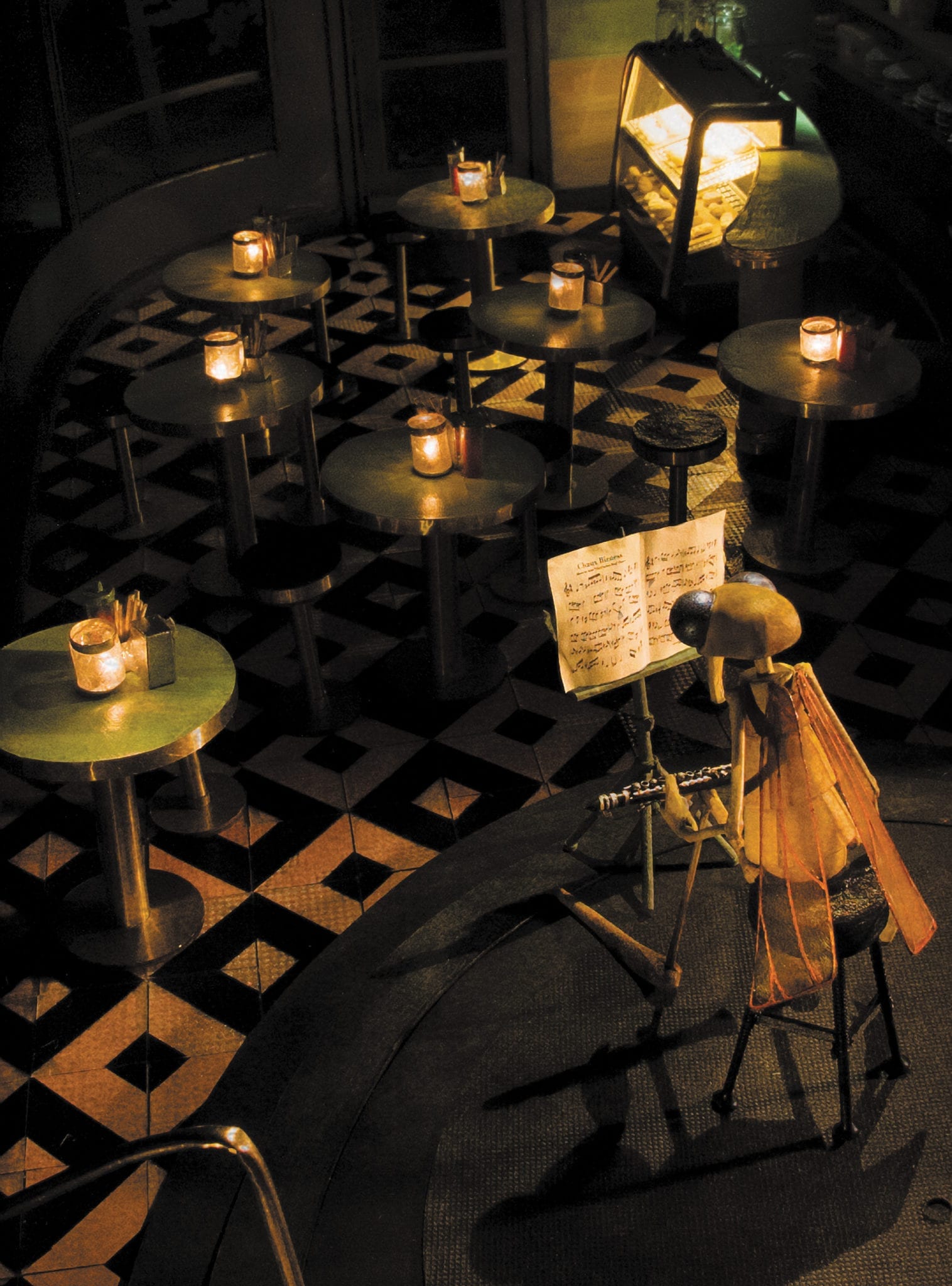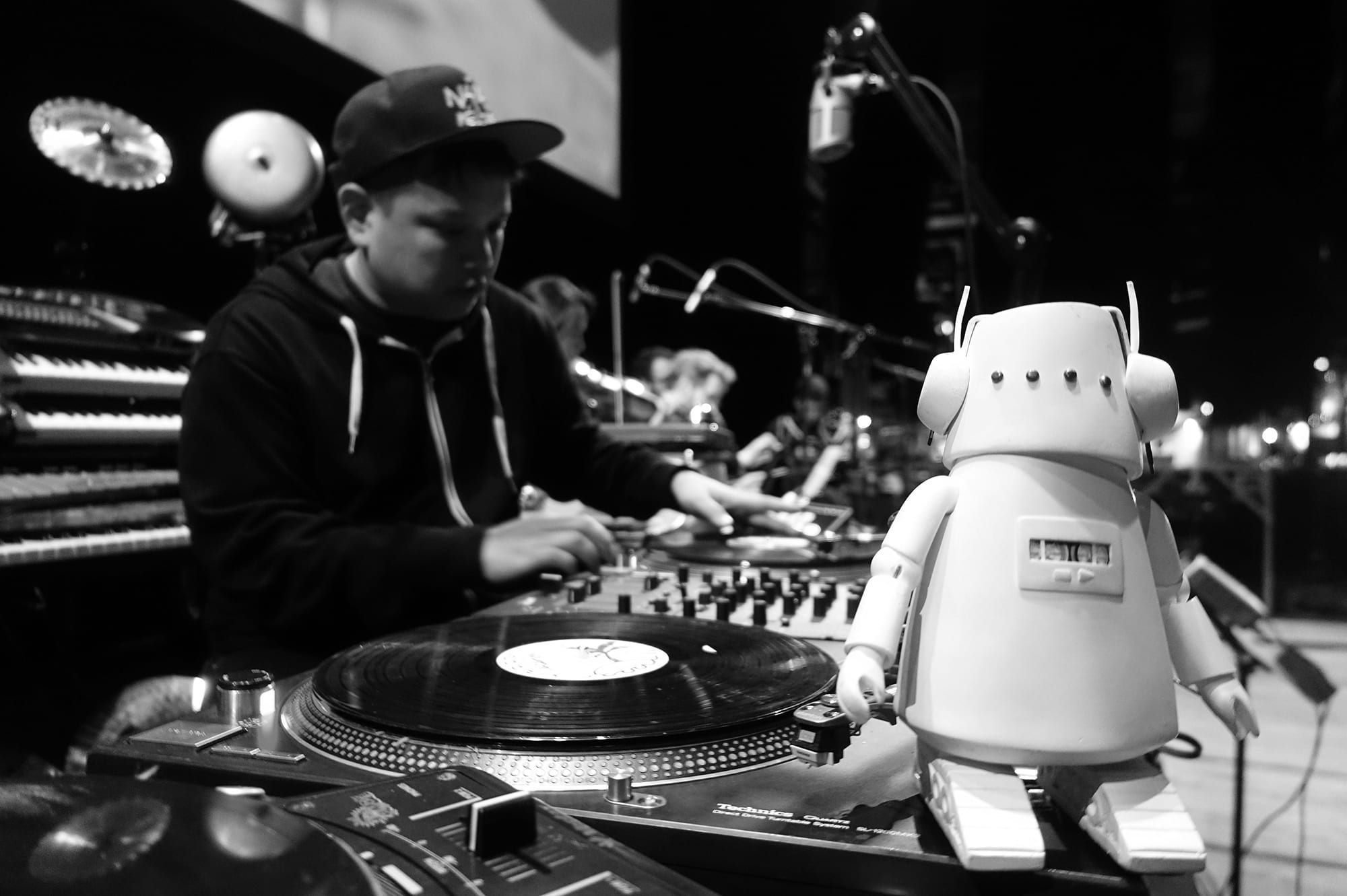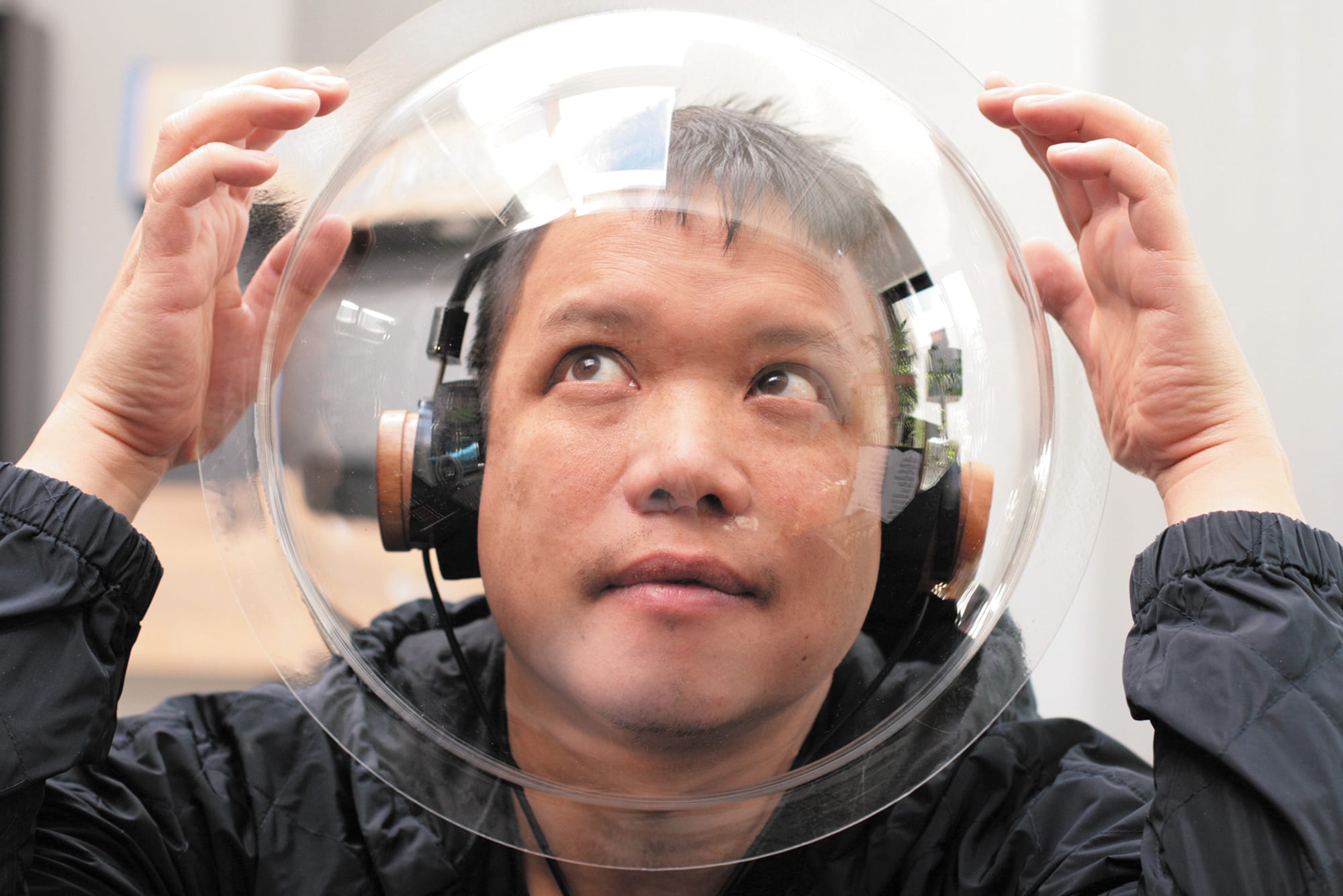
AN INTERVIEW WITH KID KOALA
By John Schaefer
Published Issue 079, July 2020
Eric San is a world-renowned turntablist who makes music and art under the name Kid Koala. In the midst of a global pandemic and international protests for racial equality, we dropped into his workshop. One of our favorite creators shares some insight into his latest projects and some advice for budding artists.
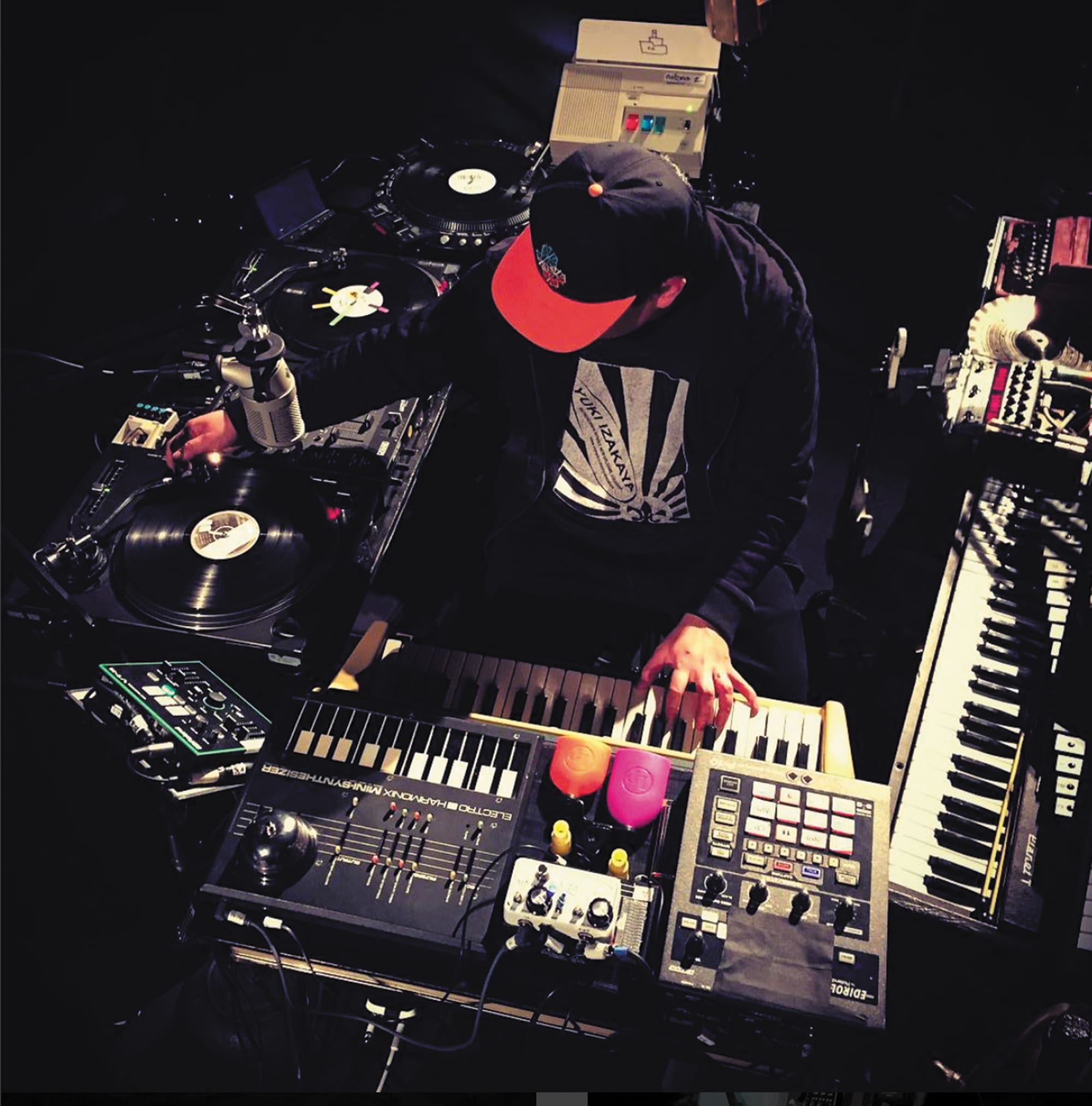
You always have so many interesting projects in the works. I wanted to do a quick lightning round to get an idea of where a few of them are at, and how or when people might be able to experience them: Creatures of the Late Afternoon, Chalk Loops, Music to Draw To, and if we got this right … a follow up Slew record?
Creatures of the Late Afternoon is the working title of my next turntable album. It’s the soundtrack to a universe of creatures that live in this imaginary apartment complex. Musically, it goes through several styles and each track is made from the point of view of a different creature in one of the apartments. It’s all made with layered scratched turntable so it’s taking quite a long time to make, but I’m having fun recording it. We’ll start rolling out tracks from the album on a series of 7″ vinyls with instrumentals, b-sides, scratch sounds and soundtrack bands for the Creatures board game which will come out with the full- length album. It is very much a passion project and I’ll be releasing it independently with the help of my patrons at Patreon.
Chalk Loops is a collaboration of short attention span “squash and stretch” animations that I’m working on with CartoonMonkey Studio. It’s starting as a series of psychedelic animation video loops but who knows what it will lead to. We’ve talked about eventually turning it into an interactive installation or tour of some sort in the future. Maybe some form of traveling interactive animation video arcade.
Music To Draw To is a series of ambient records I’ve been doing during the winters. Each album to date has featured one of my favorite vocalists. Satellite (2017) featured Iceland’s Emilíana Torrini, and Io (2019) featured USA/Belgium’s Trixie Whitley. I’m currently writing the third installment in the series and it will be released on Arts & Crafts when it’s complete.
The second album from The Slew is still in the works. It’s a turntable rock project I had started with Seattle’s Dynomite D. The live version of the band includes myself and DJ P-Love on six turntables, and Chris Ross and Myles Heskett on bass and drums. But it’s more difficult to activate at the moment as the band members are in five different cities on two different continents.
You seem to be unusually talented in getting ideas to take flight. What advice can you share for creators out there who might be having trouble getting a project to fully hatch?
Just start working on it! Personally, I’ve always been drawn to the more labor intensive arts … stop-motion animation, making tracks out of layered slivers of sounds, maybe it comes from playing with too much LEGO as a child. But I think, like anything, you gotta just start with an idea and put those first two pieces together and build from there.
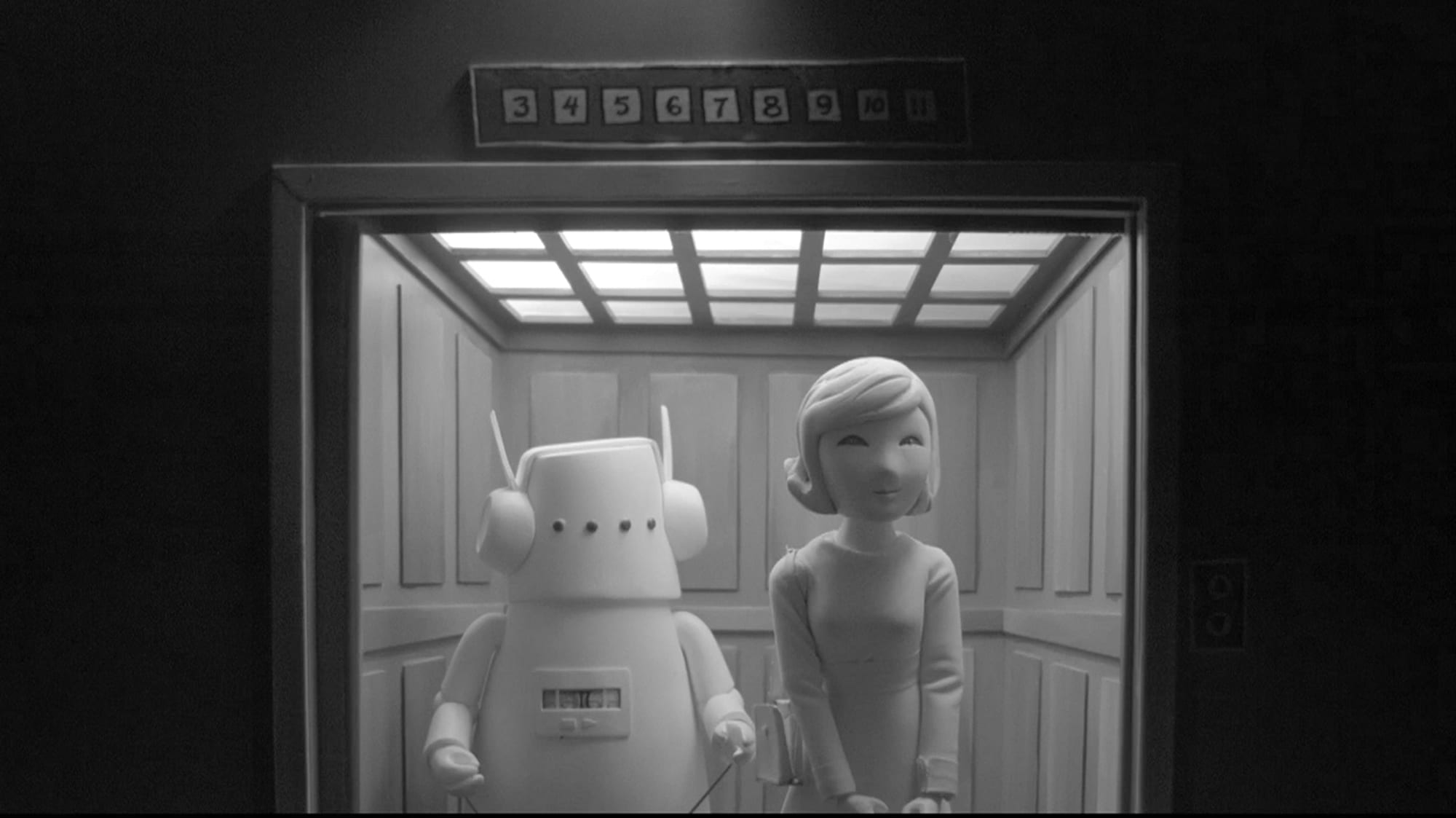
I know it’s been a dream of yours for a long time, but over the last decade you’ve accomplished a lot around your goals of developing a live puppet theater experience with a turntable orchestra pit. The idea has morphed a bit over the last several years, and I wanted to zero in on the two major projects that you’ve put together. For those who are unfamiliar, can you give us the general synopsis for Nufonia Must Fall: Live and The Storyville Mosquito? Also, where the inspiration for these stories and characters came from?
Nufonia Must Fall is a story about a robot who is trying to write love songs but is unable to sing. It was a graphic novel I had originally published in 2003 and it included a CD soundtrack composed on piano and turntable. The book itself was dialogue- free so it read a bit like a screenplay to a silent film. A decade later, with the help of director K.K. Barrett and a wonderful team of collaborators, it evolved into a touring “live film” that is performed, filmed, projected, scored and foley-ed in real time on stage each night by a team of puppeteers, camera operators, and musicians.
The Storyville Mosquito is our new show in that style. It’s a story about a mosquito that moves to the big city to fulfill a dream of performing at the world famous Sid Villa’s Music Hall. We just had our premiere last winter and have plans to bring it to other cities someday.
I grew up on a steady diet of Charlie Chaplin films, The Muppet Show, Louis Armstrong and Billie Holiday records. I’ve also always loved robots and outer space. And my favorite TV shows growing up were always nature documentaries about the deep sea or the insect world.
I remember being in Costa Rica a few years ago and I was walking on a trail through the rainforest and suddenly I saw a highway of leafcutter ants. I’m not one to get starstruck much, but seeing leafcutter ants in real life was just incredible. I had seen them on countless TV nature documentaries since childhood and I was literally awestruck. All the main characters from The Storyville Mosquito are from the insect world and all the characters in Nufonia and Space Cadet are either robots, astronauts or engineers. I feel like in an alternate version of this life I could have happily been an entomologist, astronomer or robotics engineer.
For both Nufonia and Storyville Mosquito, the performance is a live-action, puppet-driven, immersive, theatrical and cinematic performance with a soundtrack performed by you and a string trio — all of which seems to be equal parts incredibly technically complicated and experientially fascinating.
In your first undertaking with this concept, Nufonia Must Fall: Live, Director K.K. Barrett said it was your idea to film the production live with puppets and allow the audience to experience the behind the scenes creation of the show while viewing the main production. Can you explain what inspired that direction? Also, how the idea of miniature sets came into play?
The short answer is just the fun factor! K.K. Barrett likes to call it a “high tech / low tech” show. Yes, there are eight cameras, 20 sets, 70 puppets and lots of video cables and mini lights … but at the heart of the show, it’s still live human energy that makes it all work. If the people on stage stop, everything stops. It’s like an elaborate choreography with the whole team. It’s like having 15 people on one surfboard, everyone has to balance and adjust constantly to make each scene work in terms of timing the action, camera moves, lighting cues, musical stings, etc.
We had originally talked about doing it at human scale on one or two life-size sets. Perhaps it would have felt more like a traditional theatre piece if we had done that. Eventually we decided to go with a miniature scale and puppets because we could include more of the locations and cinematic shots in the original graphic novel.
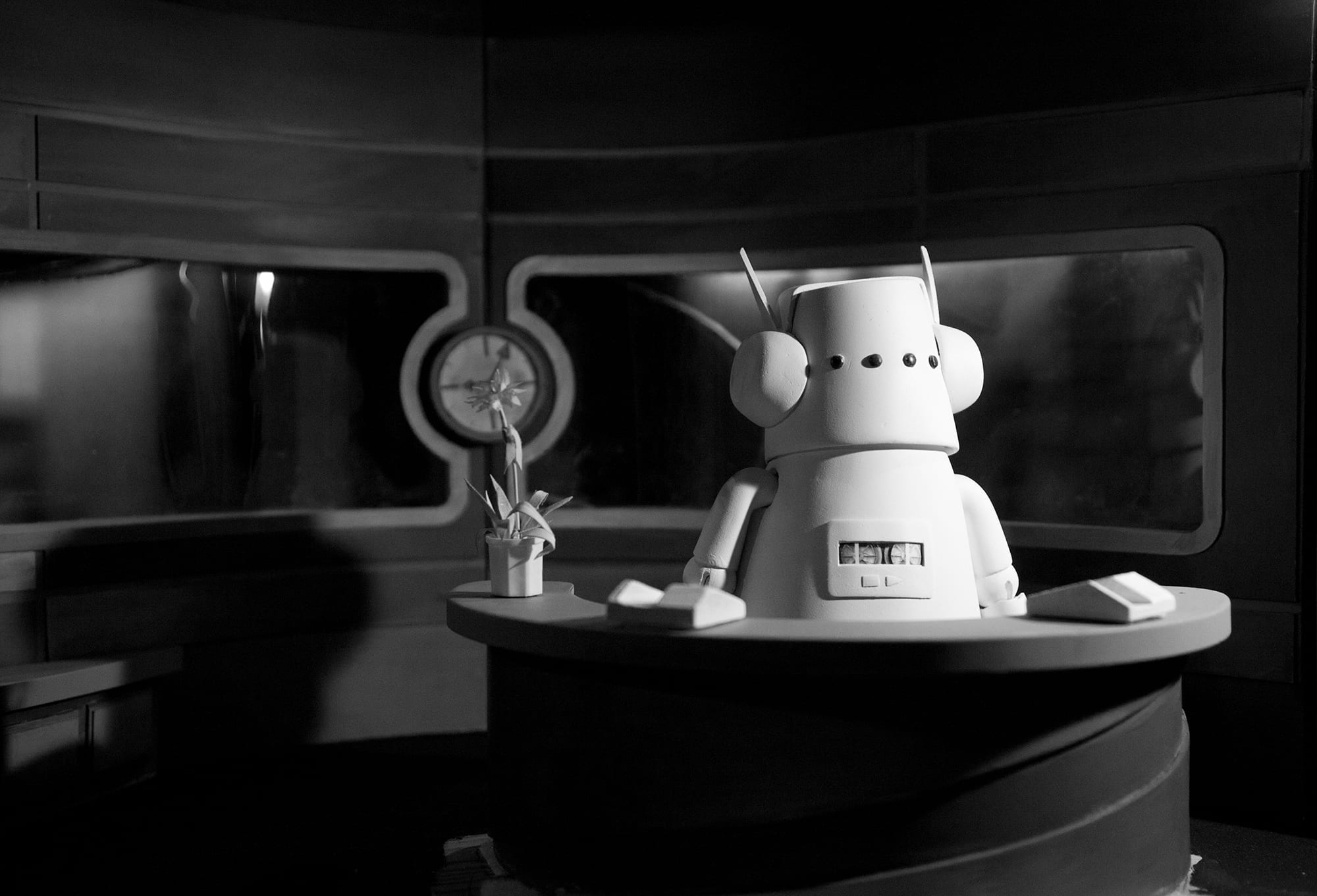
I think you can draw an arc in your career that has a lot to do with doing things at scale — from your landmark mixtape Scratchcratchratchatch where you’re applying turntablism to a cassette mix to Some of My Best Friends Are DJs where you’re assembling entire tracks from individual scratches.
It seems to be paralleled with the expansion of Nufonia Must Fall: Live’s production to the production of The Storyville Mosquito — where you’ve scaled things larger to include close-ups with Muppet-sized characters, and then even smaller to be able to pull off a crane shot. What drives you to keep expanding and increasing the complexity of your projects?
It’s really about having fun with the format of live presentations and also letting the audience into the process of what we’re doing. With these shows you can view the “final product” on the silver screen that’s hanging above the stage and at any moment look down on the stage and see “The Making Of” happening in real time. There’s an urgency to it all, knowing that it’s being created before your eyes and that it can fall apart at any moment. And that’s the point really, nothing is locked.
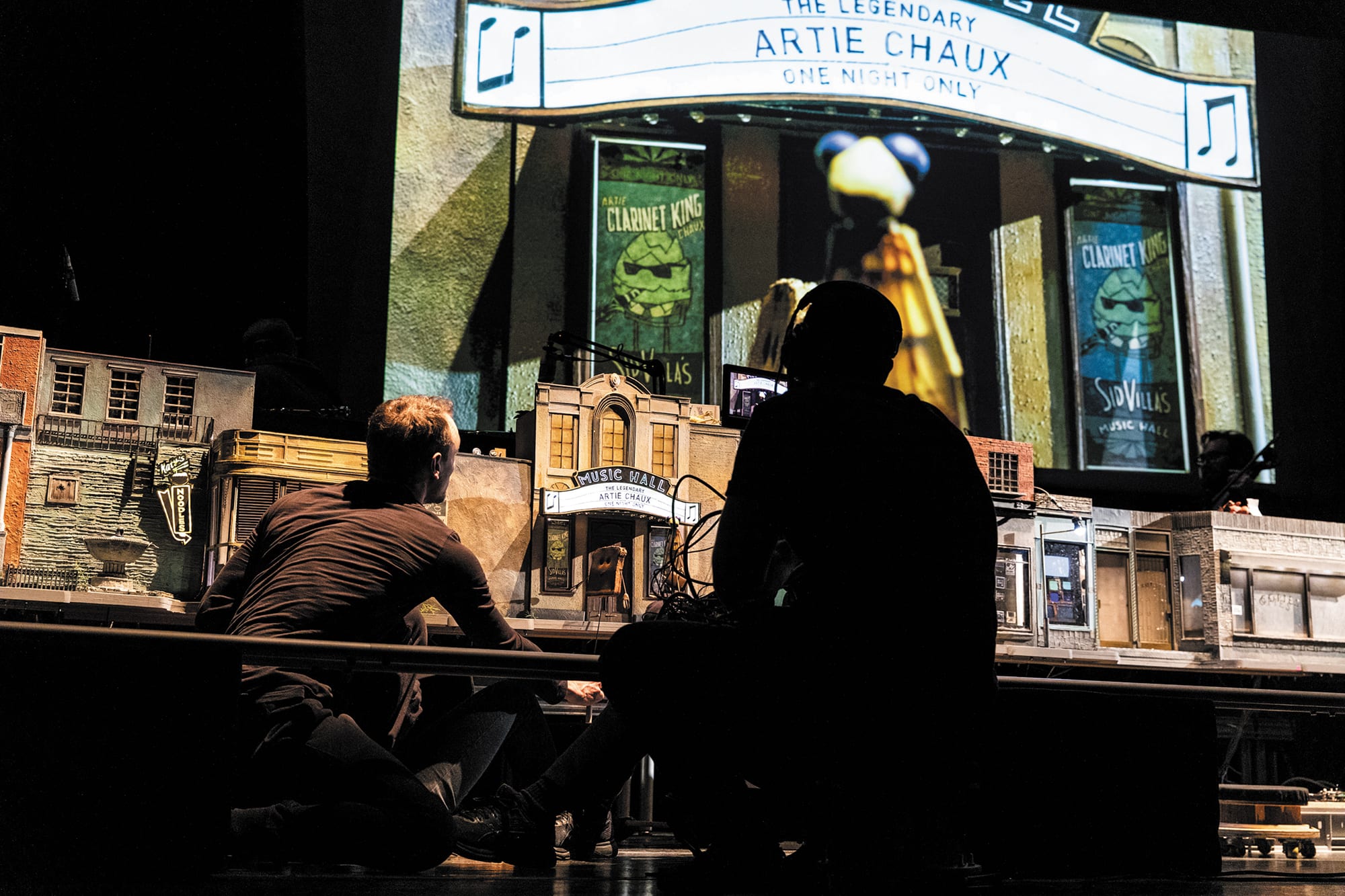
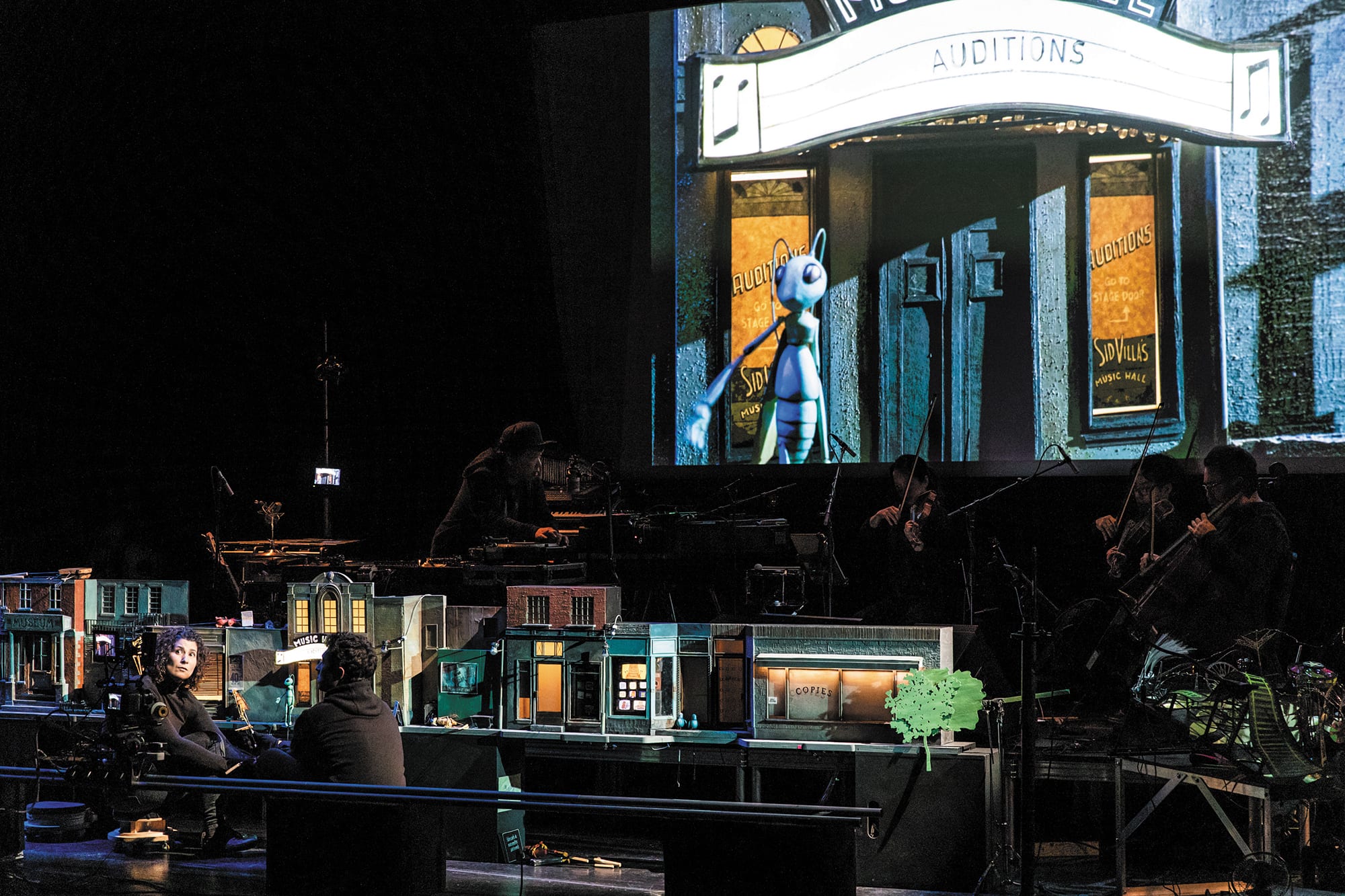
We’ll change the show from night to night and build new set pieces or add or change music cues for different cities and audiences. It’s this fight to not go into “autopilot” during the show. From a performance perspective, it keeps everyone on their toes, and hopefully it’s also enjoyable for the audience to witness.
Another theme in your work is craftsmanship and patience. Scratching in every individual hi-hat, horn blast or bass note on a track takes a lot of time. So does, in the case of The Storyville Mosquito, developing a basic story and building that up to a 70 puppet, 15 performer experience.
Storyville Mosquito made it through a world premiere between November and December of 2019 at the Cinquième Salle at Place des Arts in Montreal. But now, you have to exercise another type of patience while you wait to be able to share it with more audiences due to the pandemic. What’s it been like to have the production momentum brought to a halt? And how are you navigating the future of the show?
We had plans to bring the show to eight cities this summer and fall but obviously everything is on hold at the moment. All the presenters have rescheduled for us to appear in their seasons the following year. So for now, all puppets, sets and cameras are in their cases until the venues reopen. In the meantime, I’ve been in the studio recording new music and working on the next show.
Find out more about Kid Koala and his projects at kidkoala.com. You can support his projects and get in on his exclusive vinyl releases via Patreon.com/kidkoala.

